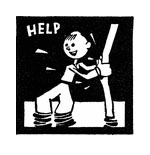
The U.S. Catholic Church Is Sinking Fast — Part III
The Pew Forum on Religion and Public Life has released a new report, titled “U.S. Religious Landscape Survey,” that analyzes data culled from interviews with over 35,000 adult Americans pertaining to religious affiliation. The news isn’t good.
Over a quarter of adult Americans have left the religion in which they were raised, the Survey found, and if one counts “shifts among Protestant denominations,” writes Neela Banerjee in The New York Times (Feb. 25), “then it appears that 44 percent of Americans have switched religious affiliations” — that is, about half of our countrymen. Evidently, the permanent things in life can no longer be said to be permanent: Americans are divorcing themselves from their religions almost as often as they divorce themselves from their spouses. What a fickle lot!
Americans aren’t just “switching” religious affiliations — they are abandoning religion en masse. Protestantism, the American “majority” religion, which in the 1970s held sway over two-thirds of the population, now accounts for barely 50 percent of the population.
The fastest-growing “religious affiliation,” according to the Survey, is the “unaffiliated” — those who profess no particular faith, but who don’t consider themselves atheists. The “unaffiliated” currently account for a bulging 16 percent of the U.S. population.
You May Also Enjoy
Satan’s war on God and man, on holiness and innocence, has intensified. Each one of us, whether we believe it or not, is conscripted in this spiritual battle.
A descendant of the South asks: How do we properly reckon with our own families’ participation in historical racial injustice?
Let us not love America inordinately or unrealistically. It is enough to be Americans without also being vainglorious Americanists.

